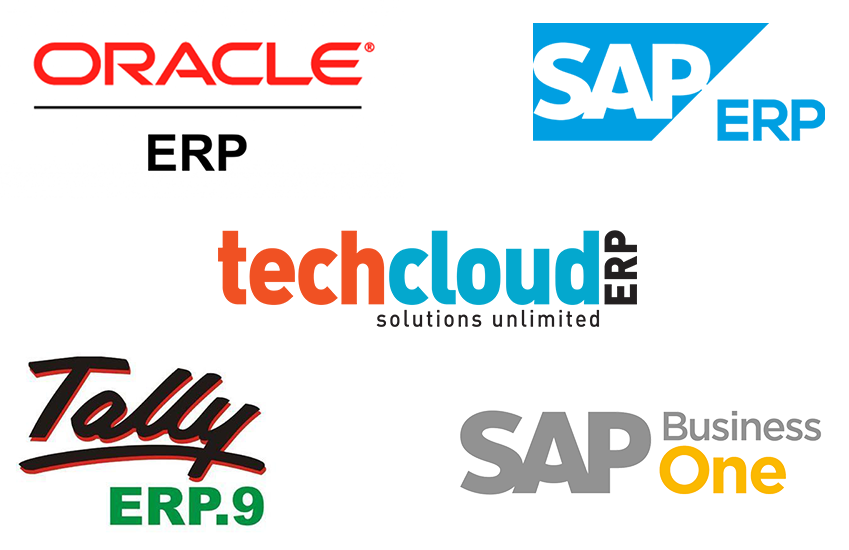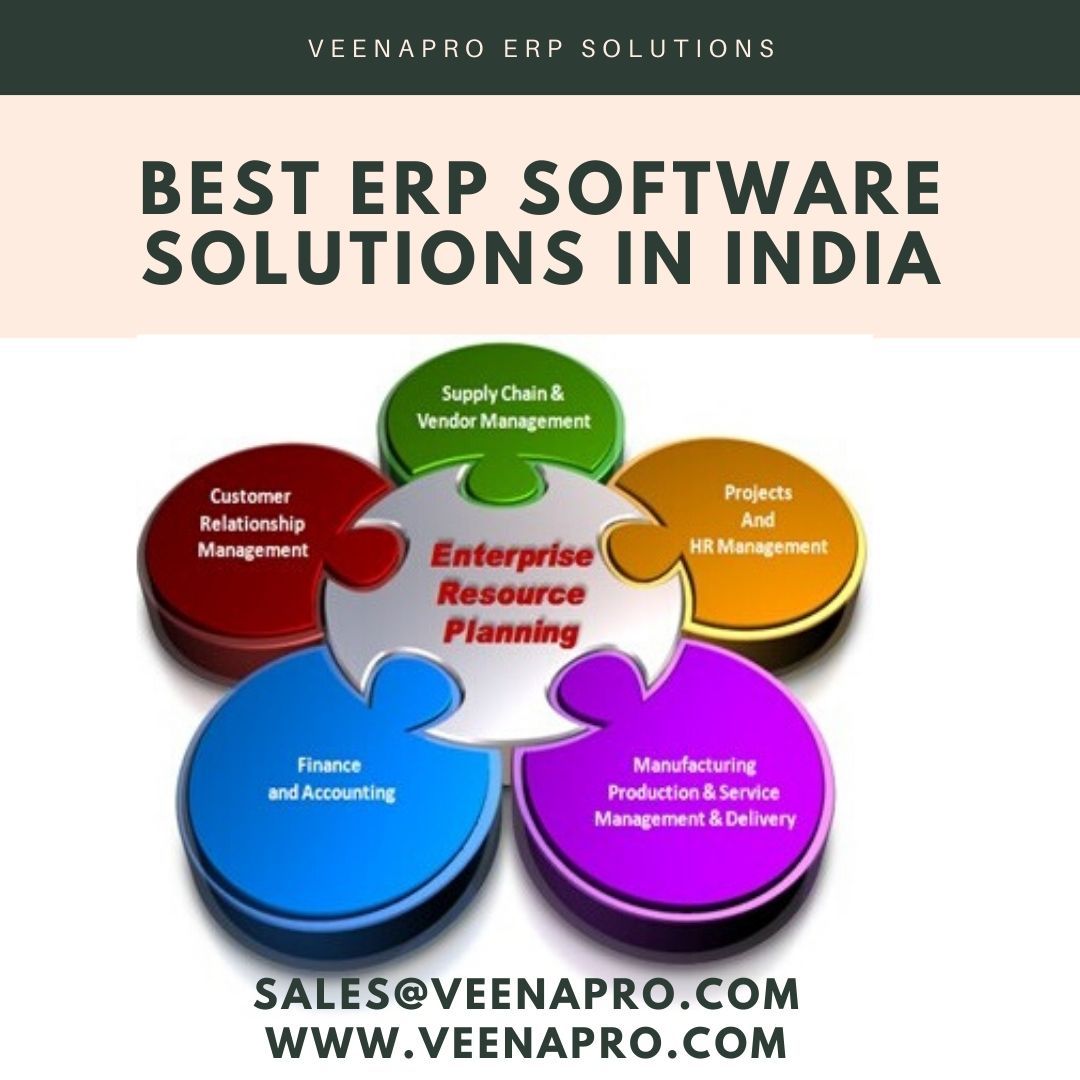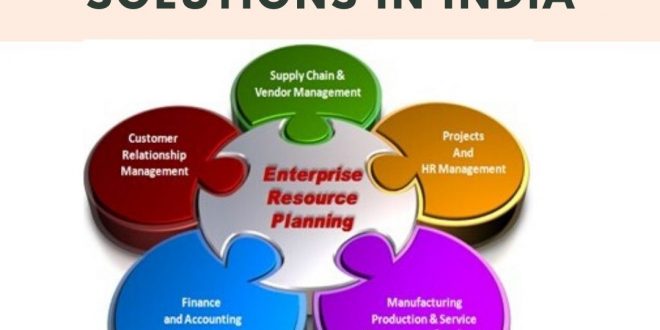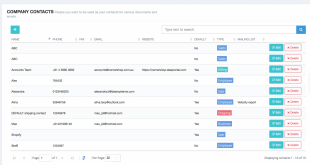ERP software in India has emerged as a powerful tool for businesses seeking to streamline operations, enhance decision-making, and gain a competitive edge. With its comprehensive suite of integrated modules and functionalities, ERP software is revolutionizing the way businesses operate in India.
The Indian ERP software market is experiencing rapid growth, driven by the increasing adoption of digital technologies and the need for businesses to improve efficiency and productivity. This article delves into the key features, benefits, selection considerations, and future trends of ERP software in India, providing valuable insights for businesses looking to leverage this transformative technology.
Market Overview of ERP Software in India

The ERP software market in India is experiencing significant growth, driven by the increasing adoption of digital technologies and the need for businesses to streamline their operations. According to a report by Mordor Intelligence, the Indian ERP software market is projected to reach a value of USD 2.38 billion by 2026, growing at a CAGR of 11.5% during the forecast period (2021-2026).
The demand for ERP software in India is primarily driven by key industry verticals such as manufacturing, retail, healthcare, and BFSI. These industries are increasingly recognizing the benefits of ERP systems in terms of improved efficiency, cost reduction, and better decision-making.
Competitive Landscape
The Indian ERP software market is highly competitive, with a number of global and domestic players vying for market share. Some of the major players in the market include SAP, Oracle, Microsoft, Infor, and Ramco Systems.
- SAP holds a significant market share in India, with its ERP solutions being widely used by large enterprises.
- Oracle is another major player in the market, with its ERP solutions catering to both large and mid-sized businesses.
- Microsoft has also gained a strong foothold in the Indian ERP software market, with its Dynamics 365 ERP solution being popular among small and medium-sized businesses.
- Infor is another leading provider of ERP software in India, with its solutions being specifically designed for specific industries such as manufacturing and healthcare.
- Ramco Systems is a leading domestic ERP software provider in India, with its solutions being widely used by small and medium-sized businesses.
Key Features and Benefits of ERP Software: Erp Software In India
ERP (Enterprise Resource Planning) software is a comprehensive business management solution that integrates various aspects of an organization’s operations into a single, unified system. It provides a central platform for managing core business processes, including finance, supply chain management, manufacturing, and human resources.
ERP software typically consists of a set of core modules that cover key business functions. These modules include:
- Financial Management:Manages accounting, financial reporting, and budgeting.
- Supply Chain Management:Automates inventory management, order processing, and supplier relationships.
- Manufacturing:Supports production planning, scheduling, and quality control.
- Human Resources:Handles employee management, payroll, and benefits.
Implementing ERP software can bring significant benefits to businesses, including:
- Improved efficiency:Streamlines processes, reduces manual tasks, and automates workflows.
- Reduced costs:Eliminates redundancies, optimizes inventory, and improves supplier negotiations.
- Enhanced decision-making:Provides real-time visibility into business data, enabling better decision-making.
The latest trends and innovations in ERP software technology include:
- Cloud-based ERP:Allows businesses to access ERP software over the internet, reducing IT infrastructure costs.
- Artificial Intelligence (AI):Automates tasks, improves decision-making, and provides predictive analytics.
- Mobile ERP:Enables employees to access ERP data and functionality from anywhere, using smartphones or tablets.
Selection and Implementation Considerations

Selecting and implementing the right ERP software solution is crucial for Indian businesses to achieve their desired outcomes. Here are some key considerations and best practices to ensure a successful ERP implementation.
When selecting an ERP solution, it’s important to evaluate the specific needs of your business, industry, and size. Consider factors such as:
- Business processes and requirements
- Industry-specific functionality
- Scalability and flexibility
- Integration capabilities
- Cost and licensing models
Implementation Best Practices
Once you’ve selected an ERP solution, the implementation process is critical for ensuring its success. Here are some best practices to follow:
- Establish a clear project plan and timeline
- Form a dedicated implementation team
- Involve key stakeholders throughout the process
- Train users thoroughly on the new system
- Test the system rigorously before going live
- Monitor the system closely post-implementation
Case Studies and Success Stories
In India, various organizations have successfully implemented ERP software, reaping significant benefits. These case studies highlight the challenges they faced and the positive outcomes they achieved.
Tata Steel
Tata Steel, a global steel giant, implemented SAP ERP to streamline its operations and enhance efficiency. The company faced challenges in integrating multiple systems, managing complex supply chains, and meeting regulatory requirements. SAP ERP helped Tata Steel consolidate data, automate processes, and improve collaboration, leading to reduced costs, improved customer service, and increased agility.
“SAP ERP has been instrumental in our digital transformation journey. It has helped us streamline our operations, improve efficiency, and gain a competitive edge in the global market.”- T.V. Narendran, CEO and Managing Director, Tata Steel
Future Outlook and Industry Trends
The ERP software market in India is poised for significant growth in the coming years, driven by factors such as increasing digitalization, government initiatives, and the growing adoption of cloud-based solutions.
Key trends that will shape the future of ERP software in India include:
Artificial Intelligence (AI) and Machine Learning (ML)
AI and ML are transforming the way businesses operate, and ERP software is no exception. AI-powered ERP systems can automate tasks, improve decision-making, and provide real-time insights. For example, AI can be used to automate inventory management, predict demand, and optimize supply chain operations.
Cloud-Based ERP, Erp software in india
Cloud-based ERP solutions are becoming increasingly popular in India, as they offer benefits such as scalability, flexibility, and cost-effectiveness. Cloud-based ERP systems can be accessed from anywhere, anytime, and they can be easily scaled up or down to meet changing business needs.
Mobility
The increasing adoption of mobile devices is driving the demand for mobile-enabled ERP solutions. Mobile ERP apps allow employees to access ERP data and functionality on the go, which can improve productivity and efficiency.
Integration with Other Systems
ERP systems are becoming increasingly integrated with other business systems, such as CRM, SCM, and BI. This integration allows businesses to have a single, unified view of their data, which can improve decision-making and streamline operations.
Opportunities and Challenges
The future of ERP software in India presents both opportunities and challenges for businesses. Opportunities include the potential to improve efficiency, reduce costs, and gain a competitive advantage. Challenges include the need to invest in new technology, the need to train employees on new systems, and the need to manage data security.
Recommendations for Businesses
Businesses that want to stay ahead of the curve in the ERP software market should consider the following recommendations:
- Invest in AI and ML-powered ERP solutions.
- Consider cloud-based ERP solutions.
- Implement mobile-enabled ERP apps.
- Integrate ERP systems with other business systems.
- Train employees on new ERP systems.
- Implement robust data security measures.
Final Review
As businesses in India continue to embrace digital transformation, ERP software will play a pivotal role in driving innovation, enhancing competitiveness, and empowering organizations to achieve their strategic objectives. By understanding the key considerations, leveraging best practices, and staying abreast of emerging trends, businesses can harness the full potential of ERP software and unlock new avenues for growth and success.
Originally posted 2024-05-20 16:46:31.
 Bussines News Daily
Bussines News Daily



